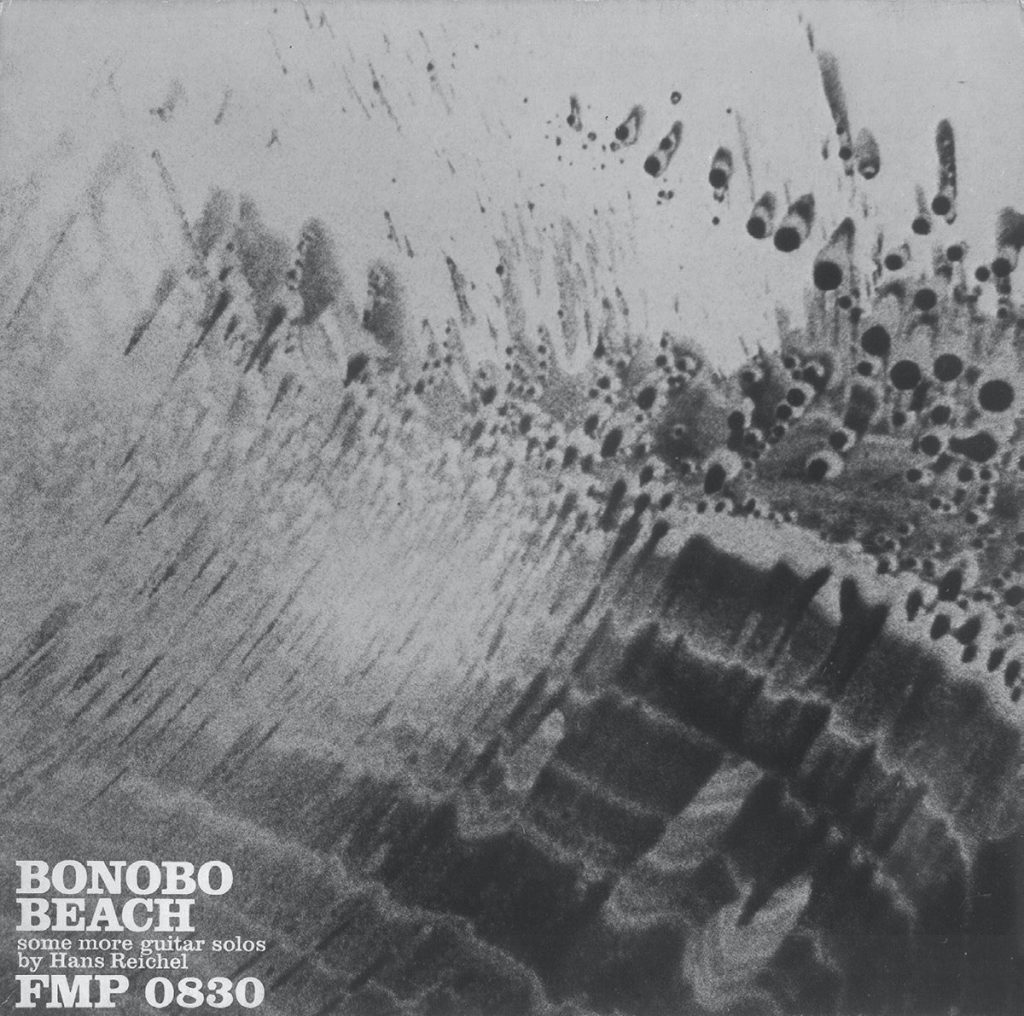
Hans Reichel was a one-of-a-kind guy. Born in Germany four years after the end of World War II, he showed an early tendency toward autodidacticism, teaching himself to play the violin at age seven. In his teens, he swapped the violin for the guitar and took up rock ‘n’ roll. But Reichel had ideas that stretched beyond what his instruments could do and the forms in which he played them, so he started modifying and building his own guitars. He’d remove or add frets, create unusual access points to the strings and combine instruments. For some folks, the transformation of the instrument is an end in itself, but the music that Reichel played was as singular as the instruments he made. While he recorded primarily for labels associated with improvised music (which were not put off by his penchant for peculiar sonorities), his melodies were often as lovely as they were unearthly.
Created in 1981, Bonobo Beach was Reichel’s fourth and final solo-guitar LP. Vinyl copies disappeared after the FMP label abandoned the format, after which the album could only be found in truncated form on a compilation CD. This reissue (available only on CD) is not only the record’s first American edition, but the first time the album can be experienced in its original form, with the original artwork, since the early 1990s. You’ve probably never heard anything quite like it, but if you follow contemporary creative string-tuggers like Joseph Allred, Paul Metzger or Rhodri Davies, you’ll find a lot about it to like.
The intricate opening notes of “Southern Monologue” sound like some unusually muscular variant of flamenco. But as the melody turns, disparate latitudes converge. Iberian gestures dissolve into liquid swoops that are fairly bluesy, a bit Hawaiian and so gorgeously airborne that it’s easy to imagine the music riding the jet stream from one continent to the next. To make such sounds, Reichel used a fretless Spanish guitar.
The two versions of the reflective title track, on the other hand, are played on a 12-string with extra frets ranked across its covering board, which enabled Reichel to top massive harmonic waves with alien, hitherto unheard notes that break and disappear like whitecaps. Two variations of “Could Be Nice” are played on an electric instrument modified to facilitate playing behind the bridge; amplified, Reichel combines a pedal-steel-like sustain with sonorities as radiant as the tropical ocean sunrise. And two final acoustic pieces take notes of harp-like delicacy on a winding crabwalk.
Reichel may have known that he had hit a peak when he made Bonobo Beach. In subsequent years, he increasingly switched over from guitar to a bowed-piece of wood that he dubbed the daxophone. As Reichel died in 2011, there’s no chance that he’ll revisit this music, which makes it even more special to have around now. Simultaneously foreign and as familiar as a favorite daydream, Bonobo Beach marks out a territory that you’re bound to want to visit over and over again.
—Bill Meyer







